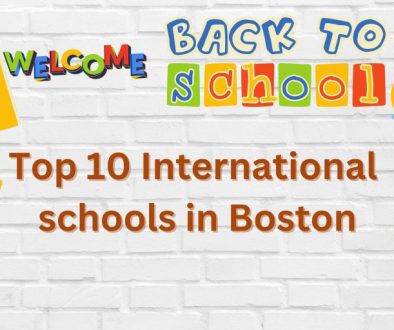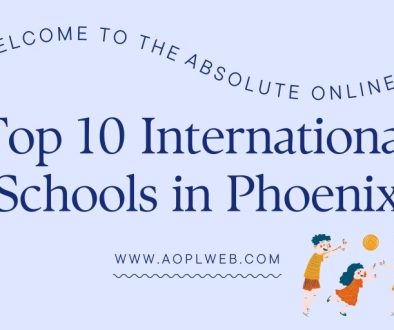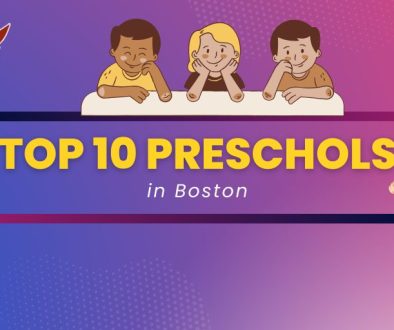
Top 10 Preschools in Arlington
Top 10 Preschools in Arlington: Helping Your Child’s Early Development
Choosing the right preschool for your child is a crucial decision that can have a significant impact on their early development. With so many preschools in Arlington to choose from, it can be challenging to narrow down your options. To make things easier for you, we’ve compiled a list of the top 10 preschools in Arlington that you can consider.
1. The Children’s School – 4101 N. Glebe Rd. Arlington, VA 22207 – (703) 243-1005 – https://www.childrensschool.org/
The Children’s School has been providing quality preschool education since 1970. They offer a curriculum that focuses on the social, emotional, and cognitive development of children aged two to five. The school has a low student-teacher ratio and provides a nurturing and supportive environment that encourages children to learn and grow.
2. St. Agnes Catholic School – 2024 N. Randolph St. Arlington, VA 22207 – (703) 525-01745 – https://school.saintagnes.org/
St. Agnes Catholic School is a private Catholic school that provides preschool education for children aged three to five. The school’s curriculum is designed to promote spiritual, intellectual, physical, and social growth in children. They also offer before and after-school care programs to accommodate working parents.
3. Chesterbrook Academy Preschool – 3133 Lee Hwy. Arlington, VA 22201 – (703) 243-4855 – https://www.chesterbrookacademy.com/
Chesterbrook Academy Preschool is a nationally accredited preschool that offers a curriculum that focuses on developing children’s social, emotional, physical, and cognitive skills. They provide a safe and nurturing environment where children can learn and grow at their own pace.
4. Discovery Preschool – 2325 N. George Mason Dr. Arlington, VA 22207 – (703) 527-0608 – https://www.discoverypreschool.org/
Discovery Preschool is a parent cooperative preschool that provides a play-based learning environment for children aged two to five. Their curriculum is designed to promote creativity, critical thinking, and problem-solving skills in children. Parents are also encouraged to get involved in their children’s education.
5. KinderCare Learning Center – 3704 N. 13th St. Arlington, VA 22201 – (703) 527-5427 – https://www.kindercare.com/
KinderCare Learning Center is a nationally recognized preschool that offers a curriculum that focuses on the physical, emotional, and intellectual development of children aged six weeks to 12 years old. They provide a safe and secure learning environment that fosters curiosity, creativity, and a love for learning.
6. Little Beginnings Daycare and Preschool – 4639 31st St. S. Arlington, VA 22206 – (703) 379-2064 – https://littlebeginningsdaycare.com/
Little Beginnings Daycare and Preschool provides high-quality care and education for children aged six weeks to six years old. Their curriculum is designed to meet the individual needs of each child and promote social, emotional, physical, and cognitive development.
7. The Montessori School of Arlington – 1415 Queen St. Arlington, VA 22204 – (703) 979-2233 – https://www.themontessorischool.us/
The Montessori School of Arlington provides a Montessori education that emphasizes hands-on learning, independence, and self-direction for children aged two to six. Their curriculum is designed to promote creativity, problem-solving skills, and social and emotional growth in children.
8. Arlington Science Focus Public School – 1501 N. Lincoln St. Arlington, VA 22201 – (703) 228-7670 – https://apsva.us/
Arlington Science Focus School is a public magnet school that provides a science, technology, engineering, and math (STEM) focused curriculum for students in preschool through fifth grade. The school has a strong emphasis on inquiry-based learning and hands-on experimentation, which allows students to develop critical thinking and problem-solving skills.
9. Marymount Early Learning Center – 2807 N. Glebe Rd. Arlington, VA 22207 – (703) 522-0285 – https://marymount.edu/
Marymount Early Learning Center is a private, nonprofit preschool that provides a Reggio Emilia-inspired curriculum for children aged two to five. The school’s approach is child-centered and encourages children to explore their interests and engage in experiential learning.
10. Bishop O’Connell High School Preschool Program – 6600 Little Falls Rd. Arlington, VA 22213 – (703) 237-1433 – https://www.bishopoconnell.org/
Bishop O’Connell High School Preschool Program is a Catholic preschool program that provides education for children aged three to five. The program’s curriculum is designed to promote spiritual, intellectual, social, and emotional growth in children. The program also offers before and after-school care programs for working parents.
Choosing the right preschool for your child can be challenging, but it’s important to find a school that aligns with your child’s needs and interests. By considering the top 10 preschools in Arlington, you can find a school that provides a nurturing and supportive environment where your child can learn and grow.
Importance and Benefits of Early Childhood Education- The Role of Preschools
Childhood education has been widely recognized as crucial in shaping a child’s brain development. The most effective approach to facilitate learning in children is through play-based activities that enable them to express themselves freely. In pursuit of imparting essential skills and knowledge to their kids, numerous parents devote extra time and attention towards early childcare, thereby emphasizing its importance. This turned out to be very beneficial for the subsequent schooling of the child.
What is Early Childhood Development?
Early childhood education typically targets children aged three to five years old and can be referred to as preschool, pre-kindergarten, daycare, nursery school, or early education.
Whatever name they are given, their common goal is to prepare children for primary school. Giving special attention to your children before they start primary school gives them a good start for the future.
Why is early childhood education necessary?
Learning to read and write at a young age is like teaching a child to drive. A better future can be secured by nurturing children’s development in these four areas: social, emotional, physical, and cognitive. Early childhood education has the potential to instill in children a love of learning that will last a lifetime if done correctly.
The benefits of early childhood education
When you are a child, the brain absorbs everything. That’s why young people must have preschools to guide them through their learning. Some of the many benefits of early childhood education include:
Teamwork: The ability to function well within a group relies on a person’s ability to listen carefully, respect the views of others, and commit to equality. All these virtues should be instilled in children from an early age. Teamwork is a major theme in preschool activities, which helps children develop a positive attitude toward working together.
Cooperation: Sharing, cooperating, and taking turns are some of the skills children learn during this time. A good social life includes all of these skills, necessitating it to teach these skills to children. In preschool, he will learn to cooperate with professional management in a safe atmosphere.
Holistic education: Being human requires a solid foundation in all aspects of one’s personality, including mental and physical well-being. The Top 10 Preschools in Arlington know perfectly how to identify a child’s weaknesses and encourage them to develop through practice. In this scenario, peer interaction is essential.
Resilience: The world we live in is constantly changing, so children must learn to adapt from an early age. Children learn through their own experiences in the challenging settings presented by preschools. The bumps and bruises they received along the way form the basis of their future coping mechanisms.
Diversity Education: Children need to be taught to recognize and accept societal differences, as today’s world is very diverse.
The role of preschool in the development of the child and his upbringing
Everyone knows that a child develops intensively in the first years of his life. This is a period during which a range of physical, intellectual, and social capabilities are formed. Therefore, it is very important that the child has access to pre-school education as early as possible.
A child in Top 10 Preschools in Arlington builds emotional maturity and develops independence. The child learns to function in a peer group: to observe common norms, to be patient, to wait for their turn, and to adapt to the instructions of adults.
The child’s contact with many new people means that the child expands his vocabulary, learns to formulate his own thoughts, and gains many new experiences during the game. The presence of a child in kindergarten is often an opportunity to pick up on anxious behavior and possible developmental disorders and to identify skills that are more or less developed.
The benefits of a child’s time in kindergarten will bear fruit in the future, as preschool is “the best time to prevent any subsequent learning difficulties – eliminating disharmony and developmental disorders.”
The main goal of preschool education is the child’s comprehensive development, adapted to his individual abilities. So, for example, here you can find out how to prepare a child for school. This means that the task of preschool institutions is “to create such conditions (material, educational, emotional) for the child to fully develop his potential – intellectual, cognitive, social, moral, emotional and motivational in terms of respect for the needs of health and development.”
Given the importance of the emotional sphere in the child’s development, one should be aware of the child’s emotions during his stay in kindergarten. The teaching staff from all sides should carefully monitor the child. It is very important to put the child in a preschool environment, which will affect his attitude towards his peers and teachers and overall well-being, which is largely influenced by contact with the environment and satisfaction with his actions.
An important factor influencing a child’s emotions is the way the child is recognized in kindergarten, i.e., the moment the threshold is crossed. This moment has a huge impact on his attitude towards kindergarten. The organization of admission of children to kindergarten should take into account their capabilities and developmental needs.
The understanding of preschool institutions’ existence and importance has changed among parents and kindergarten staff. Today, a kindergarten is not only a place where a child prepares for a school education or a place for caring for children whose parents work professionally. First of all, it is a tool that creates developmental conditions for children that allow them to form their individuality and develop their potential abilities using their individual capabilities.
The process of preschool education of a child involves the implementation of tasks, which will lead to “the development of cognitive independence, spontaneity, curiosity, internal motivation for learning, the desire to discover the world, perseverance in completing tasks, creativity, etc.”
Pre-school education allows you to notice and eliminate developmental deficits in children. Individual work with a child has so intertwined with his stay in kindergarten that none of the children notices this, and thus the child does not feel inferior to others.
The child will learn the meaning of moral values more deeply if he can accumulate experience on this issue in a group of peers. This mainly concerns such values as the ability to distinguish good from evil and to help the weak.


